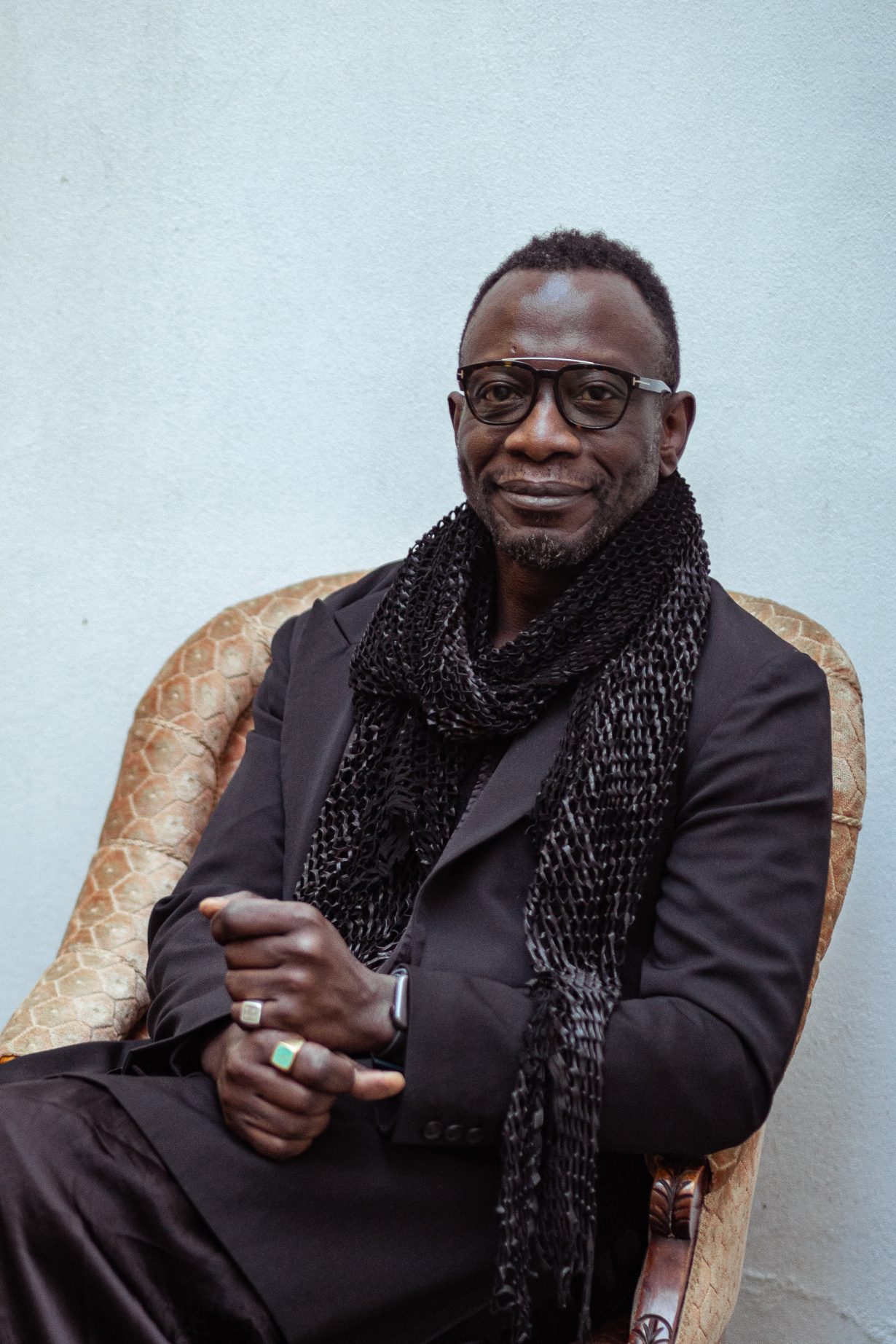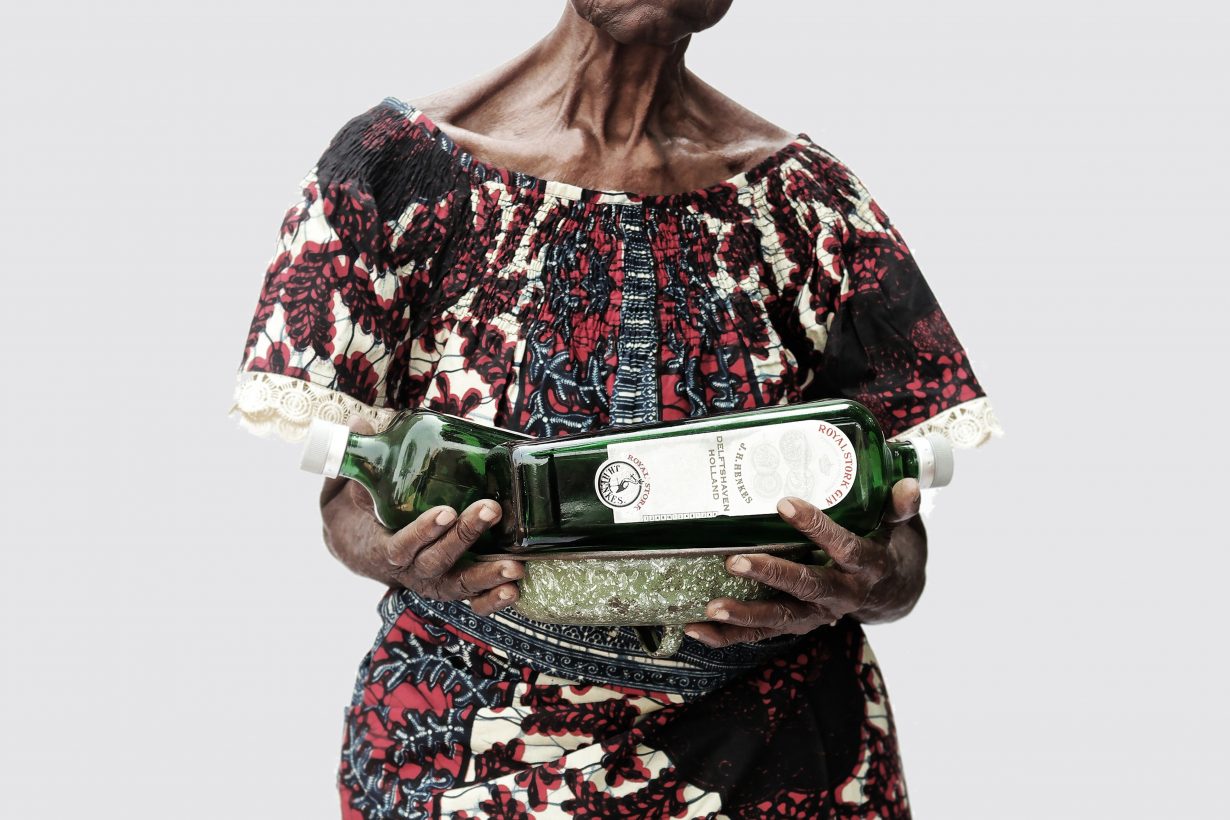ArtReview sent a questionnaire to artists and curators exhibiting in and curating the various national pavilions of the 2024 Venice Biennale, the responses to which will be published daily in the leadup to and during the Venice Biennale, which runs from 20 April to 24 November.
Azu Nwagbogu is curating the Republic of Benin pavilion. The project is titled ‘Everything Precious is Fragile’.

ArtReview What do you think of when you think of Venice?
Azu Nwagbogu Fragility and unassailable beauty. For whatever reason, I always think of our big brother Okwui when I think of Venice. I always have this image of him striding through the grounds during his show at Venice in 2015 etched in my mind.
AR What can you tell us about your exhibition plans for Venice?
AN The exhibition is entitled ‘Everything Precious is Fragile’, which draws inspiration from Yoruba Gèlèdè philosophy and through which we address some of the most urgent contemporary global ecological concerns. The selected artists, Hazoumè, Quenum, Akpo, and Bello, present works that complement each other, forming an essential solo presentation highlighting the fragility and resurgence of indigenous wisdom with a focus on the return to mother nature – rematriation – that is fundamental to thinking about a more wholesome existence for the world at large. Through the exhibition we challenge epistemic injustice of the silencing of indigenous voices world over.
AR Why is the Venice Biennale still important, if at all? And what is the importance of showing there? Is it about visibility, inclusion, acknowledgment?
AN The Venice Biennale is still very relevant but also has, as with all things beautiful and precious, a fragile, precarious existence. With each edition, the artists and curators must meet the moment. Governments, funders and all manner of stakeholders must not suppress artistic voices in the name of political agenda. We are witnessing the trend of state-sponsored censorship of artists in Europe and it is a concern. Venice must not cower and kowtow to remain relevant.
AR When you make artworks do you have a specific audience in mind?
AN It is a cliché to say it but the first audience is myself. Is this idea exciting and inspiring? Does it tingle and spark me into a space of deepened curiosity? As a curator, I try to live and participate with minimal dissonance between my existence as a thinker and as a compassionate being trying to make sense of my survival in this world.

AR Do you think there is such a thing as national art? Or is all art universal? Is there something that defines your nation’s artistic traditions? And what is misunderstood or forgotten about your nation’s art history?
AN The events that shape any nation can provide material for what may be considered national art but that does not mean that those events, as unique as they might be, have not happened similarly in other nations. This is the beauty of engaging with the emotional truths of art.
AR If someone were to visit your nation, what three things would you recommend they see or read in order to understand it better?
AN To understand the Republic of Benin better, one might recommend exploring: traditional ceremonies and rituals, such as those associated with Gèlèdè traditions and Vodoun; Benin’s amazon warriors, Agojie, and the role of women in protecting and nurturing the nation; the history of colonialism and slave trade.
AR Which other artists have influenced or inspired you?
AN Too many to name here but all the artists I am working with on this edition of the inaugural participation at Venice are inspiring and exceptional.
AR What, other than your own work, are you looking forward to seeing while you are in Venice?
AN As ever, I have a keen ear to the ground on all the Africa Pavilions. The Netherlands have made a brave and inspired choice in selecting CATPC, the Congolese artist collective along with the artist Renzo Martens to represent their pavilion. I am excited to see the Portuguese pavilion as I have a close working relationship with a number of the artists selected and we address issues from very similar positions. I am also excited to see and have reached out to a number of pavilions like the French, Japanese, British and many more. It should be a great exhibition.
The 60th Venice Biennale, 20 April – 24 November